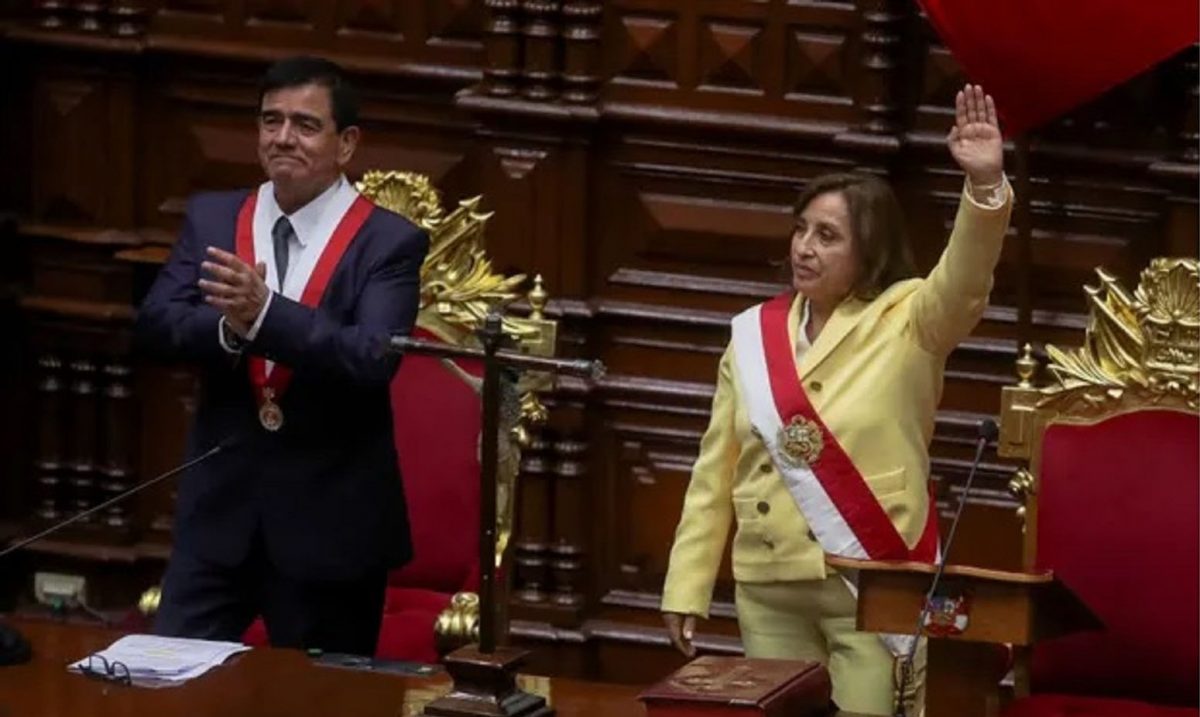LIMA, (Reuters) – Peru swore in a new president yesterday after a day of political drama that saw leftist leader Pedro Castillo arrested after his ousting from office in an impeachment trial following his last-ditch bid to cling to power by dissolving Congress.
Ignoring Castillo’s attempt to shut down the legislature by decree, lawmakers moved ahead with a previously planned impeachment trial, with 101 votes in favor of removing him, six against and 10 abstentions.
The result was announced to loud cheers, and the legislature called on Vice President Dina Boluarte to take office.
The 60-year-old Boluarte was sworn in as president through 2026, making her the first woman to lead Peru. She called for a political truce after months of instability, including two prior impeachment attempts, and said a new cabinet inclusive of all political stripes would be formed.
She lambasted Castillo’s move to dissolve Congress as an “attempted coup.”
The public ministry said on Wednesday evening that Castillo had been detained and accused of the crimes of “rebellion” and “conspiracy” for breaking the constitutional order.
Television outlets showed Castillo leaving a police station and reported he would be moved to a police-run prison.
Castillo earlier had said he would temporarily shut down Congress, launch a “government of exception,” and call for new legislative elections.
That sparked resignations by his ministers amid angry accusations from both opposition politicians and his allies that he was attempting a coup. The police and armed forces warned him that the route he had taken to try to dissolve Congress was unconstitutional and the police said they had “intervened” to fulfill their duties.
Some small street protests took place. In Lima, dozens of people waving Peruvian flags cheered Castillo’s downfall, while elsewhere in the capital and in the city of Arequipa his supporters marched and clashed with police. One held a sign saying: “Pedro, the people are with you.”
Dozens of police officers with shields and plastic helmets were deployed around the Government Palace and Congress in Lima, which were surrounded by metal barricades.
Peru has gone through years of political turmoil, with multiple leaders accused of corruption, frequent impeachment attempts, and presidential terms cut short.
The latest legal battle began in October, when the prosecutor’s office filed a constitutional complaint against Castillo for allegedly leading “a criminal organization” to profit from state contracts and for obstructing investigations.
Congress summoned Castillo last week to respond to accusations of “moral incapacity” to govern.
Castillo has called the allegations “slander” by groups seeking “to take advantage and seize the power that the people took from them at the polls.”
The 53-year-old leftist teacher-turned-president had survived two previous attempts to impeach him since he began his term in July 2021.
But after Wednesday’s attempt to dissolve Congress his allies abandoned him and regional powers underlined the need for democratic stability.
“The United States categorically rejects any extra-constitutional act by President Castillo to prevent Congress from fulfilling its mandate,” the U.S. ambassador to Peru, Lisa Kenna, wrote on Twitter.
Later on Wednesday, a spokesperson for the U.S. State Department welcomed Boluarte’s appointment in a statement, adding that the United States would “support Peru under the unity government President Boluarte pledged to form.”
The turmoil rattled markets in the world’s number two copper producer, though analysts said that the removal of Castillo, who has battled a hostile Congress since taking power, could eventually be positive.
“Peru’s financial markets will suffer, but won’t collapse, thanks mainly to solid domestic fundamentals,” said Andres Abadia at Pantheon Macroeconomics.





